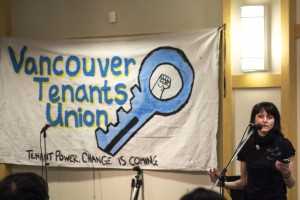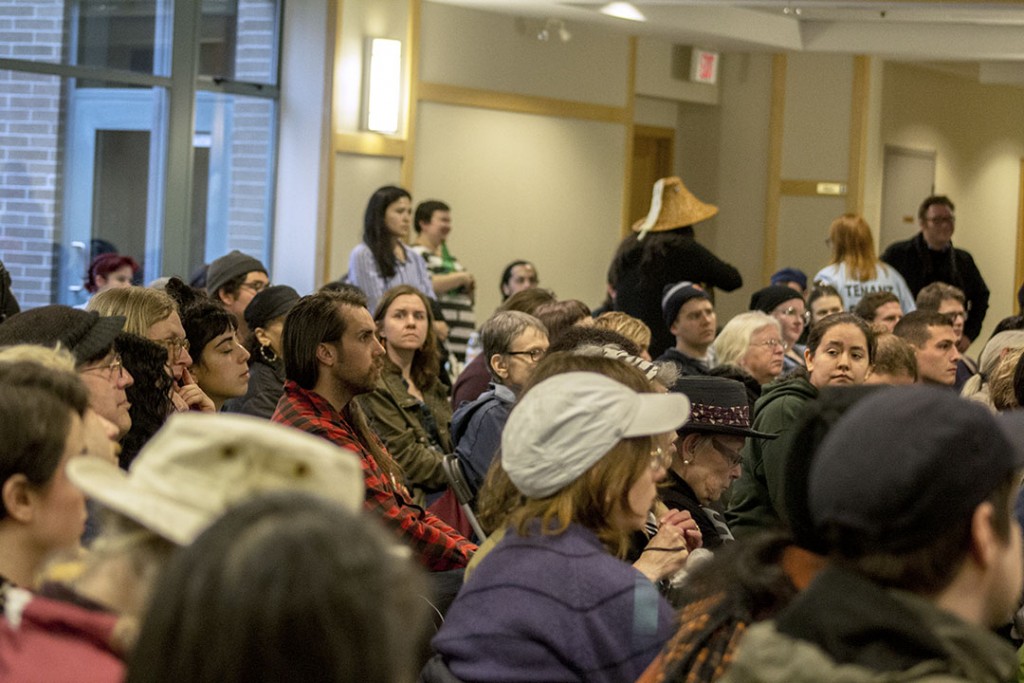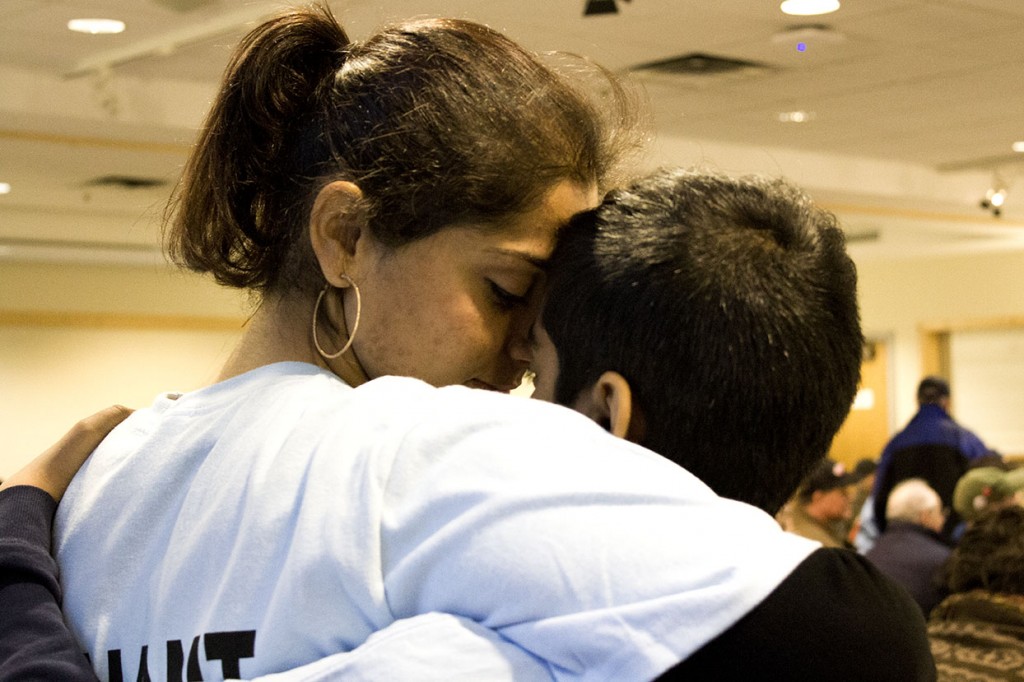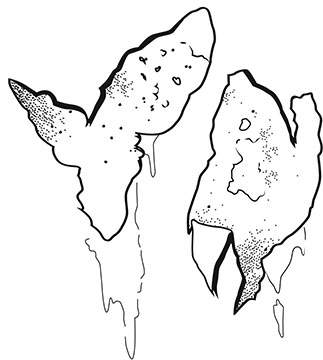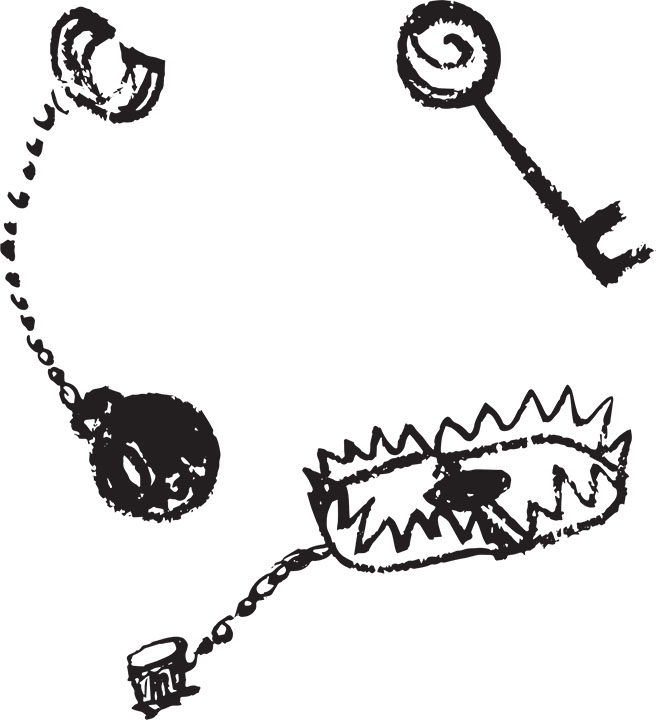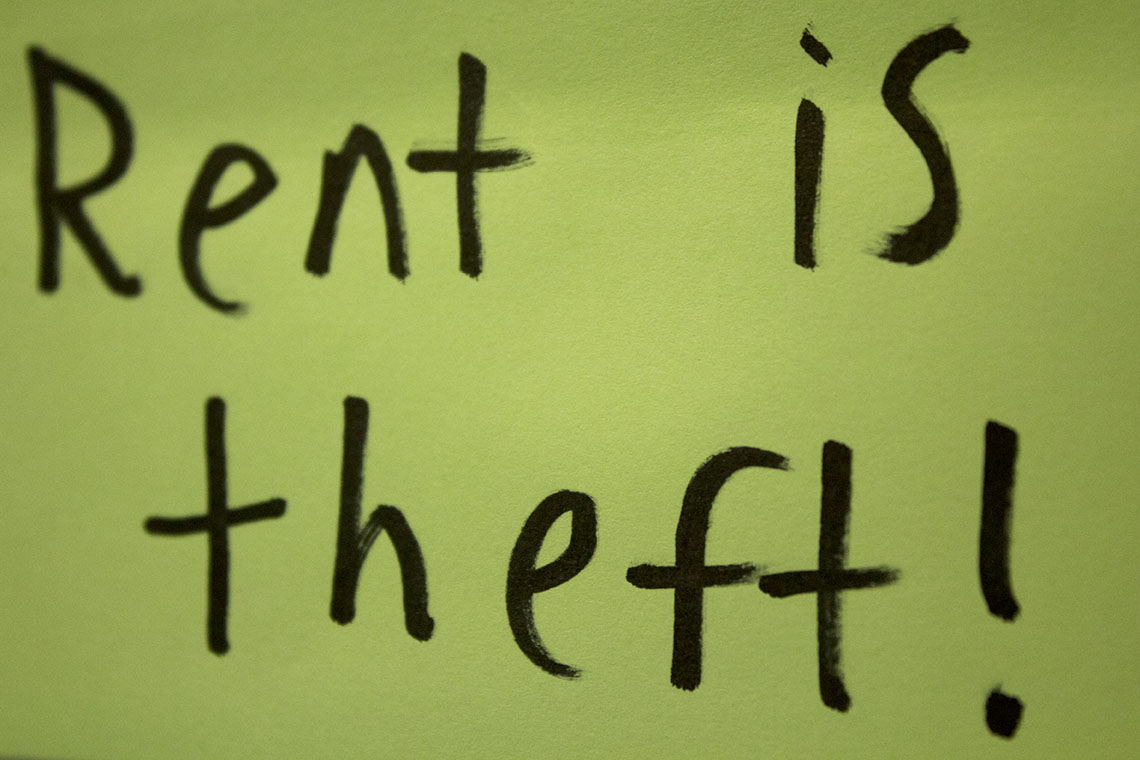If you want to know how Vancouver renters feel about their tenancy arrangements, wear a Vancouver Tenants Union button around for a week.
Inviting comments from baristas and bosses alike, the buttons included in the Union’s $1 membership fee elicit the kinds of conversations the Union as a whole seeks to encourage. They are an invitation to share, to commiserate, and to question the state of tenancy in Vancouver.
Roughly 50 per cent of Vancouver residents are renters, so the abundance of stories is no surprise. In a housing economy subject to multitudinous local and international forces, being one of this 50 per cent means getting lost in the noise. Renters are left isolated and prone to abuses they do not have the means to fight — demovictions, renovictions, breaches of privacy, illegal rent hikes, fixed-term lease loopholes. These abuses and others exist in a thorny realm of by-laws and bureaucracy, so dense that many renters don’t know their own rights. Arguably, with the branches of legal recourse stacked in favour of landlords, the BC government offers little support for those seeking housing justice — or simply housing security. Asserting that housing is a human right, one that is in serious jeopardy, the Vancouver Tenants Union intends to do something about it.
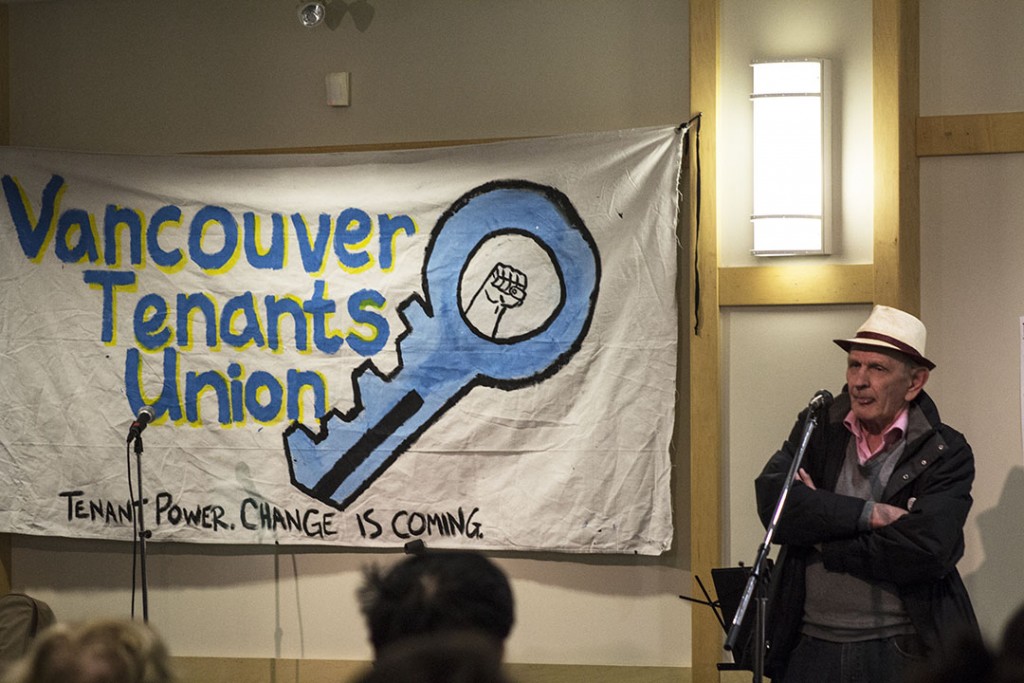

Volunteer-founded and run, the VTU was born out of housing justice work in the Downtown Eastside, recognizing the need to bring together renters across the city to combat problems faced by folks of all demographics. “We know the reason why the Tenants Union is gathering so much attention is because everybody has an issue,” says Kell Gerlings, a coordinator on the Union’s Steering Committee. “So many people across every single neighbourhood are fed up and frustrated with everything.” At the Union’s first official meeting these frustrations took centre stage, as everyone in attendance introduced themselves, their neighbourhood, and what brought them to the meeting. As these stories circulated, similarities ringing from Mount Pleasant to Surrey, they were interspersed with suggestions for existing resources. Having only begun in mid-March, the VTU is still fledgling, still figuring out what it can and needs to be.

While the union is open to, and intends to work for, every tenant across the city, its roots in the DTES are integral. “We know that the people most at risk are the most marginalized and vulnerable people, the low income and homeless people living in the Downtown Eastside,” says Gerlings, “So we’re really looking to make sure we prioritize low-income folks and marginalized people in our work because that’s what makes it better for everybody.” The challenges of this include bringing people together across lines of class, and incorporating an organizational model that represents the cultural and linguistic diversity of Vancouver tenants. With Punjabi and Chinese being the second and third most-spoken languages in Vancouver after English, and with the disproportionately high levels of Indigenous homelessness in Vancouver, the project of combatting tenancy injustice cannot be one stuck in anglocentric whiteness.
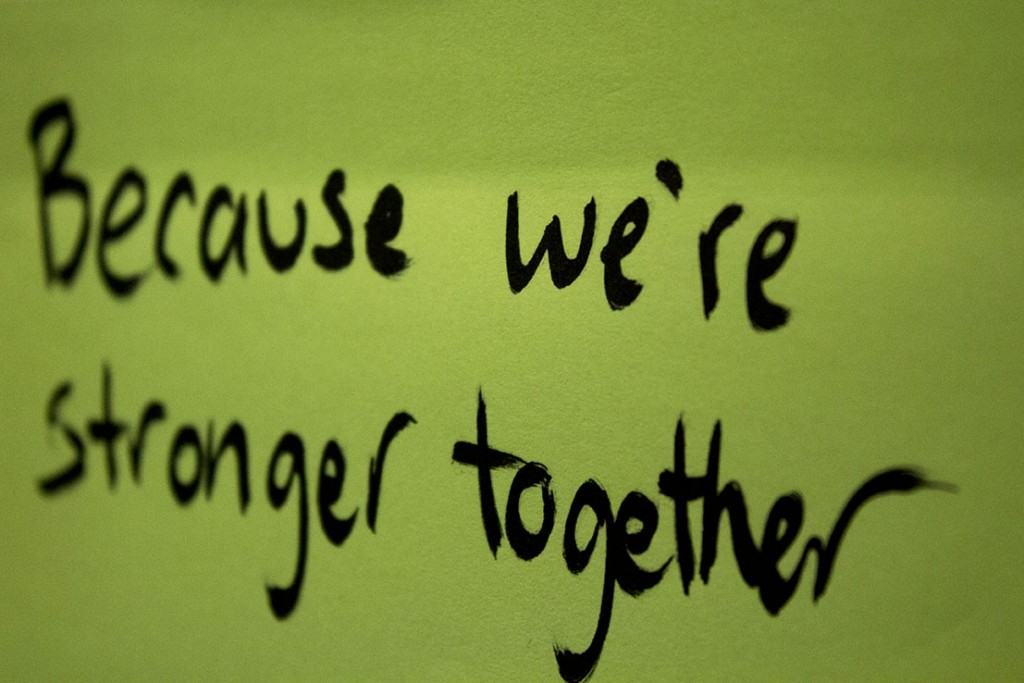
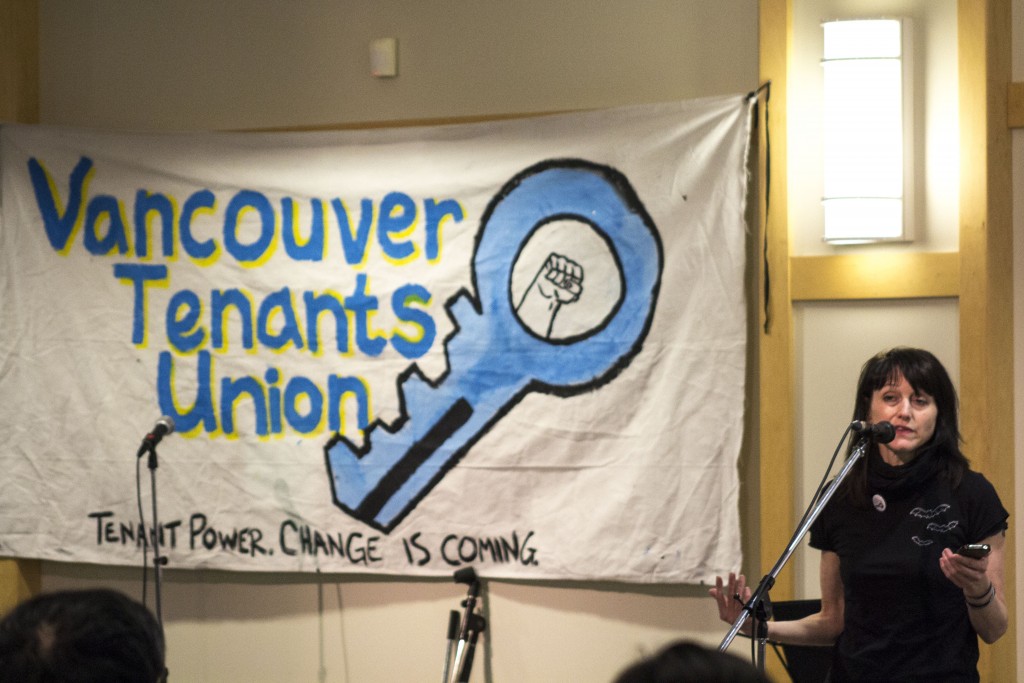
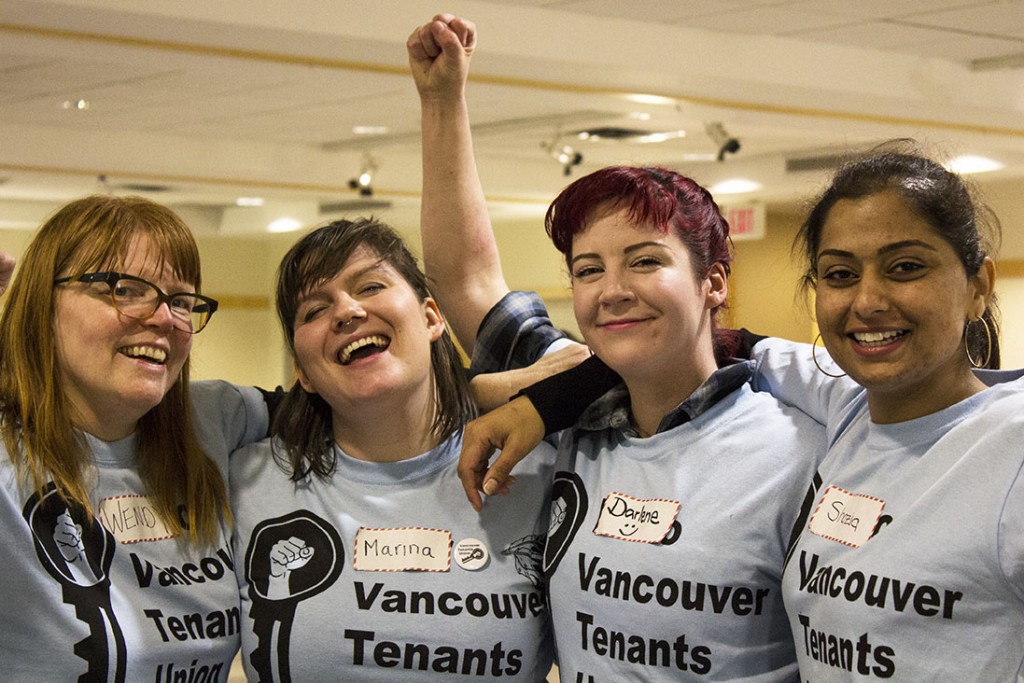
The VTU is galvanized by the knowledge that improving housing for everybody is not a project that can be left up to the municipal or provincial government. The last 10 years of frozen welfare rates under Christy Clark and rising homelessness is backed up by hypocritical by-law enforcement. An anecdote shared at the Union’s launch told of the City refusing to enforce bylaw violations in the Single Resident Occupancy buildings of the DTES, yet enforcing the bylaws that would take down a tent city on unused city property intended for future social housing development.
“The reason why we decided to become a union […] is because as a union we have our own demands, we have our own strong collective voice,” Gerlings explains. The demands are simple and clear. “Real rent control,” meaning rents cannot be arbitrarily increased between tenancies or beyond the often-overshot annual limit of 3.7 per cent. “Eviction protections,” which they hope to effect through policy change. And “more housing and better incomes for all” with a goal of 10,000 units of social housing a year at welfare rate until the dearth of affordable housing is filled. These goals may seem ambitious, but they are necessarily so. As Gerlings points out, the union gets to set its own minimum bar, and they are doing so by asking simply and assertively for what is needed. “If we’re not asking for what we need,” they add, “what are we doing?”
Capacity building among the Union’s almost 500 members is a central means of meeting these demands. This includes educating tenants about their rights and how to assert them through workshops, teach-ins, and public forums and consultations. The hope is that the union can establish a tenant organizer in every multi-unit rental building in the city, and connecting tenants to resources and to each other is a primary method of accomplishing this. It is, as Gerlings says, “people power. […] It’s really about getting other people to learn and to know more and to be able to advocate for each other.”

Currently headed by an interim steering committee, the VTU will hold a conference in the fall to elect union leadership, write their constitution and bylaws, and train organizers. Open to anyone, the convention will also host tenant organizers from the United States to facilitate cross-border knowledge sharing.
The spread of the union outside the borders of Vancouver proper is evidentiary of the desperate need for it. “Some of the messages we’ve gotten so far [from people in Victoria, Burnaby, and Squamish] have been like, “Thanks so much, it’s about time,” Gerlings says. “It’s about time for tenants to talk to each other, it’s about time for people to talk to each other.”
x
To learn more about the Vancouver Tenants Union, to become a member, or to learn how to donate, visit their website at tenantsunion.ca, and follow them on social media. To stay up to date with future meetings, email tenantsunion.yvr@gmail.com. Their next meeting is June 10.
—
References:
British Columbia Government. “Rent Increases.” Housing & Tenancy. Last modified March 16, 2017. https://www2.gov.bc.ca/gov/content/housing-tenancy/residential-tenancies/during-a-tenancy/rent-increases. Accessed May 23, 2017.
Statistics Canada. “Visual Census.” 2011 Census. Released October 24, 2012. Last modified February 9, 2016. https://www12.statcan.gc.ca/census-recensement/2011/dp-pd/vc-rv/index.cfm?Lang=ENG&TOPIC_ID=1&GEOCODE=01. Accessed May 23, 2017.
Vancouver Tenant’s Union Website. https://www.tenantsunion.ca. Accessed May 23, 2017.
